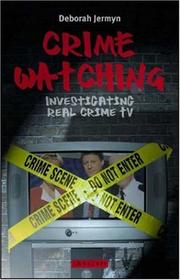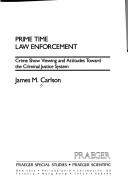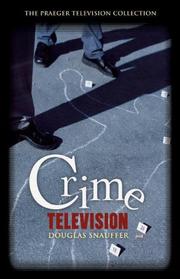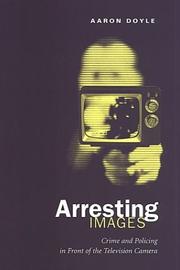| Listing 1 - 10 of 19 | << page >> |
Sort by
|
Book
ISBN: 2130802451 Year: 2018 Publisher: Paris cedex 14 (Humensis 170 bis, boulevard du Montparnasse 75680) : Presses Universitaires de France,
Abstract | Keywords | Export | Availability | Bookmark
 Loading...
Loading...Choose an application
- Reference Manager
- EndNote
- RefWorks (Direct export to RefWorks)
Sous les apparences d'une série politique, House of Cards explore l'affirmation subversive de Machiavel : et si le prince était un animal féroce ? Parviendrait-il à maîtriser sa soif de sang ou serait-il fidèle à sa nature profonde ? Dans leur quête du pouvoir, les ambitions implacables de Frank Underwood, de sa femme Claire et de son adjoint Doug Stamper les conduisent à faire voler en éclats la frontière entre le bien et le mal. Dans une logique machiavélienne poussée à l'extrême, la nécessité propre à la situation l'emporte toujours sur la morale commune : ils sont des prédateurs qui entendent bien gagner la lutte pour la survie. Emmanuel Taïeb explore la façon dont les créateurs de la série mettent en scène des figures criminelles et monstrueuses, telles qu'on peut les trouver dans l'univers du polar ou des films d'horreur, puis les implantent dans l'univers politique qui, par sa faible résistance à la violence, devient un laboratoire de destruction systématique. Dans cette variation sur le conflit entre brutalisation et civilisation au cœur du pouvoir, la politique devient le lieu même du crime.

ISBN: 9781845112394 9781845112387 1845112393 1845112385 Year: 2006 Publisher: London : I. B. Tauris,
Abstract | Keywords | Export | Availability | Bookmark
 Loading...
Loading...Choose an application
- Reference Manager
- EndNote
- RefWorks (Direct export to RefWorks)
Book
ISBN: 0814338526 9780814338520 9780814334065 0814334067 Year: 2013 Publisher: Detroit : Wayne State University Press,
Abstract | Keywords | Export | Availability | Bookmark
 Loading...
Loading...Choose an application
- Reference Manager
- EndNote
- RefWorks (Direct export to RefWorks)
Sopranos (Television program) --- Crime on television. --- Crime in television --- Television

ISBN: 0030035384 Year: 1985 Publisher: New York (N.Y.) : Praeger,
Abstract | Keywords | Export | Availability | Bookmark
 Loading...
Loading...Choose an application
- Reference Manager
- EndNote
- RefWorks (Direct export to RefWorks)
Crime on television. --- Criminal justice, Administration of --- Public opinion --- Public opinion.
Book
ISBN: 9783428124749 Year: 2007 Publisher: Berlin Duncker & Humblot
Abstract | Keywords | Export | Availability | Bookmark
 Loading...
Loading...Choose an application
- Reference Manager
- EndNote
- RefWorks (Direct export to RefWorks)
Crime on television --- Mass media and crime --- Mass media and criminal justice --- Reality television programs --- Social aspects

ISBN: 0275988074 Year: 2006 Publisher: Westport, Conn. : Praeger,
Abstract | Keywords | Export | Availability | Bookmark
 Loading...
Loading...Choose an application
- Reference Manager
- EndNote
- RefWorks (Direct export to RefWorks)

ISBN: 0802085040 1282022946 9786612022944 1442671009 9781442671003 9781282022942 0802036821 9780802036827 9780802085047 6612022949 Year: 2003 Publisher: Toronto
Abstract | Keywords | Export | Availability | Bookmark
 Loading...
Loading...Choose an application
- Reference Manager
- EndNote
- RefWorks (Direct export to RefWorks)
While most research on television examines its impact on viewers, Arresting Images asks instead how TV influences what is in front of the camera, and how it reshapes other institutions as it broadcasts their activities. Aaron Doyle develops his argument with four studies of televised crime and policing: the popular American 'reality-TV' series Cops; the televising of surveillance footage and home video of crime and policing; footage of Vancouver's Stanley Cup riot; and the publicity-grabbing demonstrations of the environmental group Greenpeace. Each of these studies is of significant interest in its own right, but Doyle also uses them to make a broader argument rethinking television's impacts. The four studies show how televised activities tend to become more institutionally important, tightly managed, dramatic, simplified and fitted to society's dominant values. Powerful institutions, like the police, harness television for their own legitimation and surveillance purposes, often dictating which situations are televised, and usually producing 'authorized definitions' of the situations, which allow them to control the consequences. While these institutions invoke the notion that "seeing is believing" to reinforce their positions of dominance, the book argues that many observers and researchers have long overstated and misunderstood the role of TV's visual component in shaping its influences
Crime on television --- Mass media and crime. --- Mass media and criminal justice. --- Mass media --- Reality television programs --- Social aspects. --- Crime on television. --- Criminal justice and mass media --- Crime and mass media --- Reality-based television programs --- Reality shows (Television programs) --- Crime in television --- Criminal justice, Administration of --- Nonfiction television programs --- Television --- Crime
Book
ISBN: 1529208076 152920805X 1529208092 1529208084 Year: 2021 Publisher: Bristol, UK : Bristol University Press,
Abstract | Keywords | Export | Availability | Bookmark
 Loading...
Loading...Choose an application
- Reference Manager
- EndNote
- RefWorks (Direct export to RefWorks)
Drawing on complex narratives across film, TV, novels and graphic novels, this authoritative critical analysis demonstrates the value of fictional narratives as a tool for understanding, explaining and reducing crime and social harm. McGregor establishes an original theory of the criminological value of fiction.
Criminology. --- Crime in literature. --- Crime on television. --- Crime in motion pictures. --- Motion pictures --- Crime in television --- Television --- Crime --- Social sciences --- Criminals --- Study and teaching --- Sociological aspects. --- Criminal sociology --- Criminology --- Sociology of crime --- Sociology --- Sociological aspects
Book
ISBN: 081427093X 0814211372 081425764X Year: 2010 Publisher: Columbus : Ohio State University Press,
Abstract | Keywords | Export | Availability | Bookmark
 Loading...
Loading...Choose an application
- Reference Manager
- EndNote
- RefWorks (Direct export to RefWorks)
Crime on television. --- Criminal investigation in literature. --- Crime in literature. --- True crime stories --- History and criticism. --- Crime narratives, Nonfiction --- Crime narratives, True --- Crime stories, True --- Nonfiction crime narratives --- True crime narratives --- Prose literature --- Crime in television --- Television
Book
ISBN: 9781138624337 Year: 2017 Publisher: London ; New York : Routledge,
Abstract | Keywords | Export | Availability | Bookmark
 Loading...
Loading...Choose an application
- Reference Manager
- EndNote
- RefWorks (Direct export to RefWorks)
| Listing 1 - 10 of 19 | << page >> |
Sort by
|

 Search
Search Feedback
Feedback About UniCat
About UniCat  Help
Help News
News